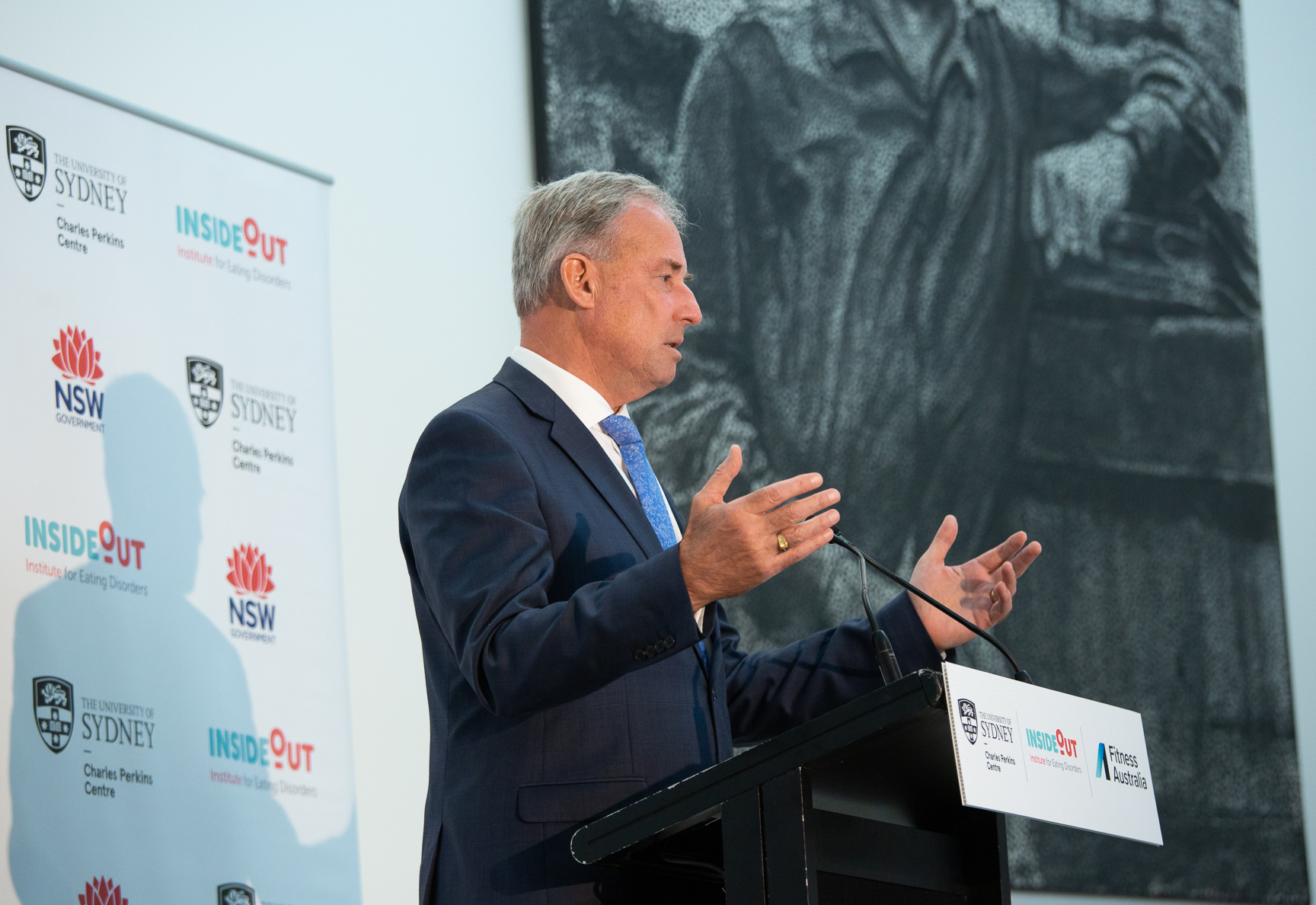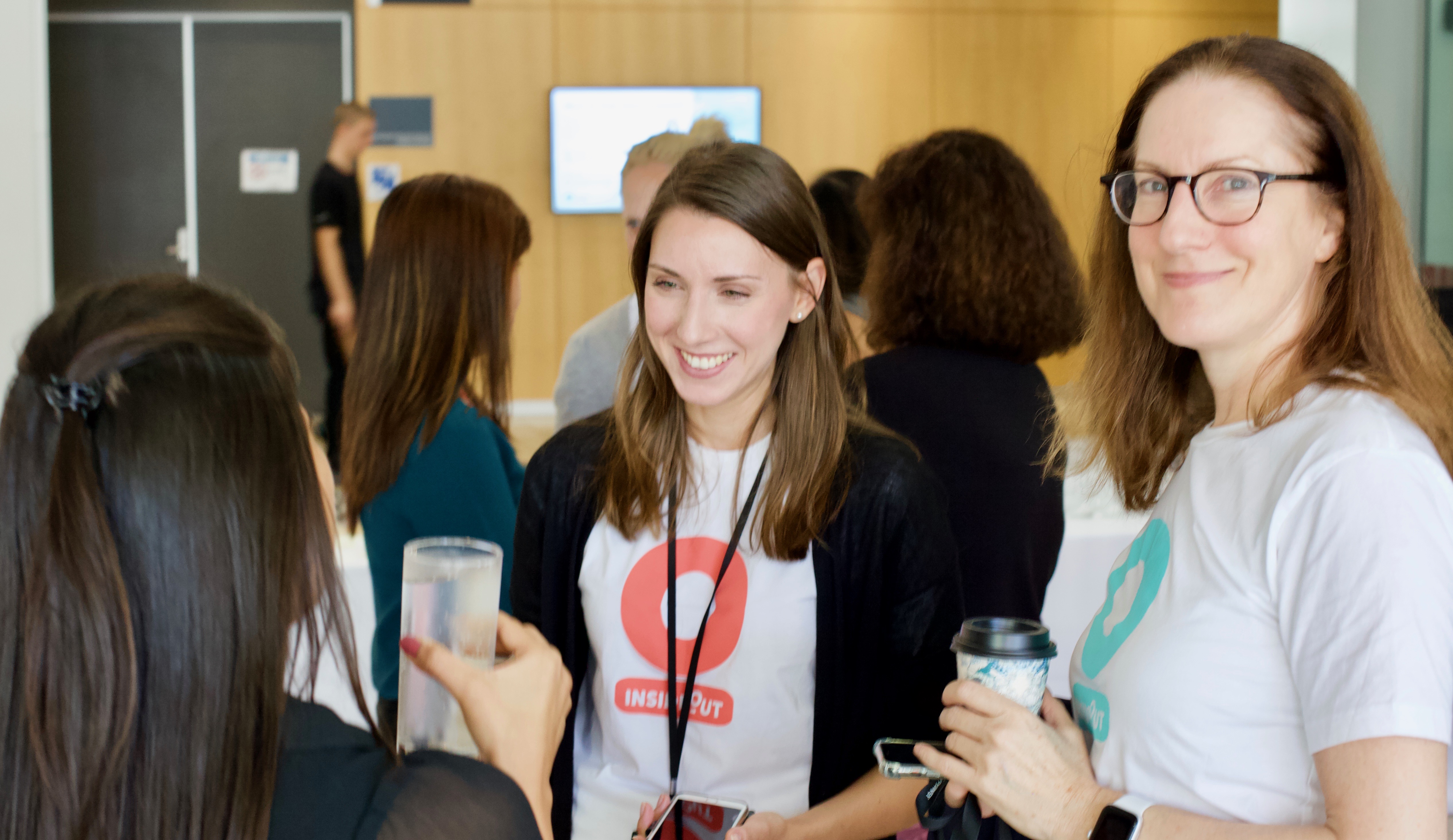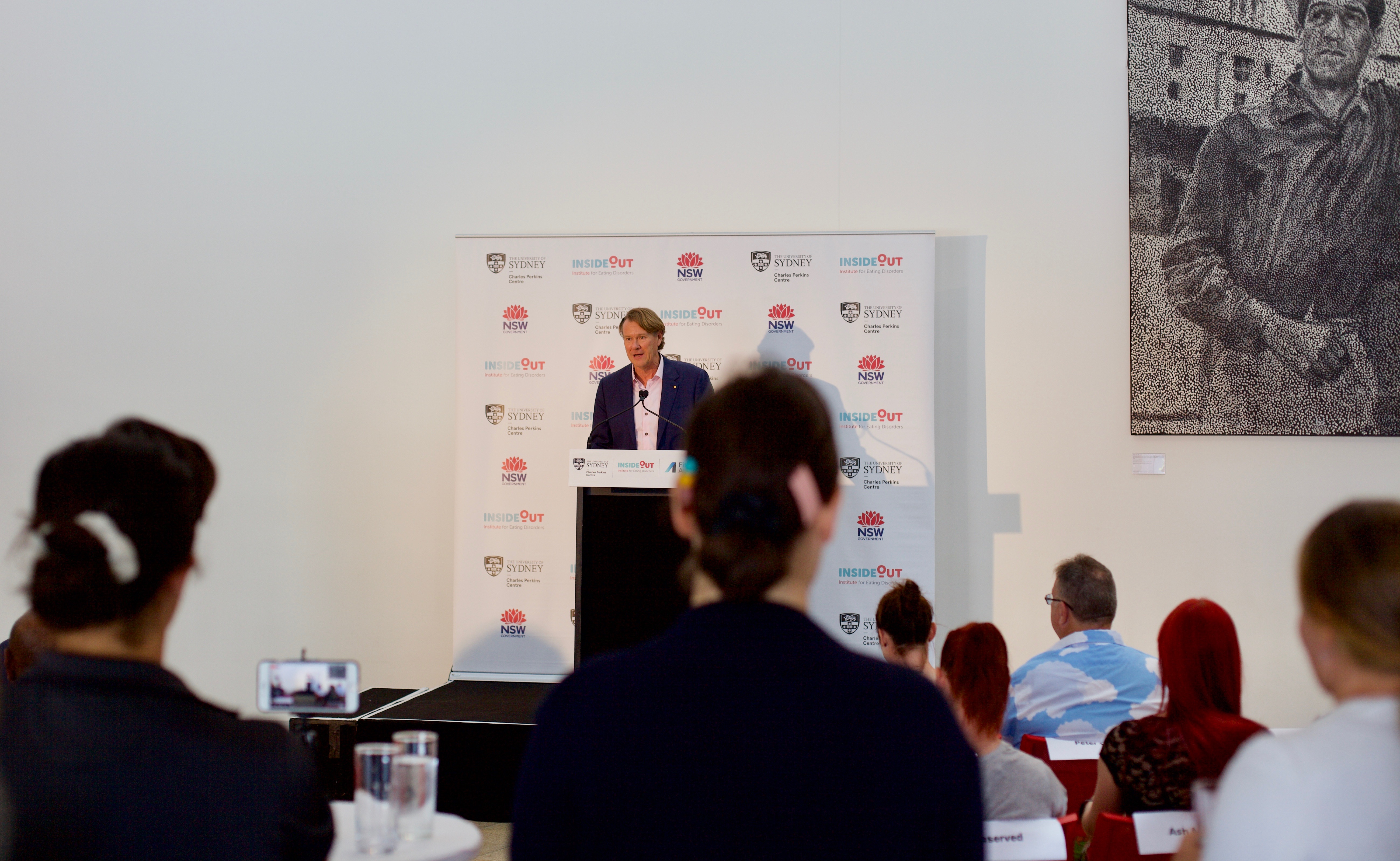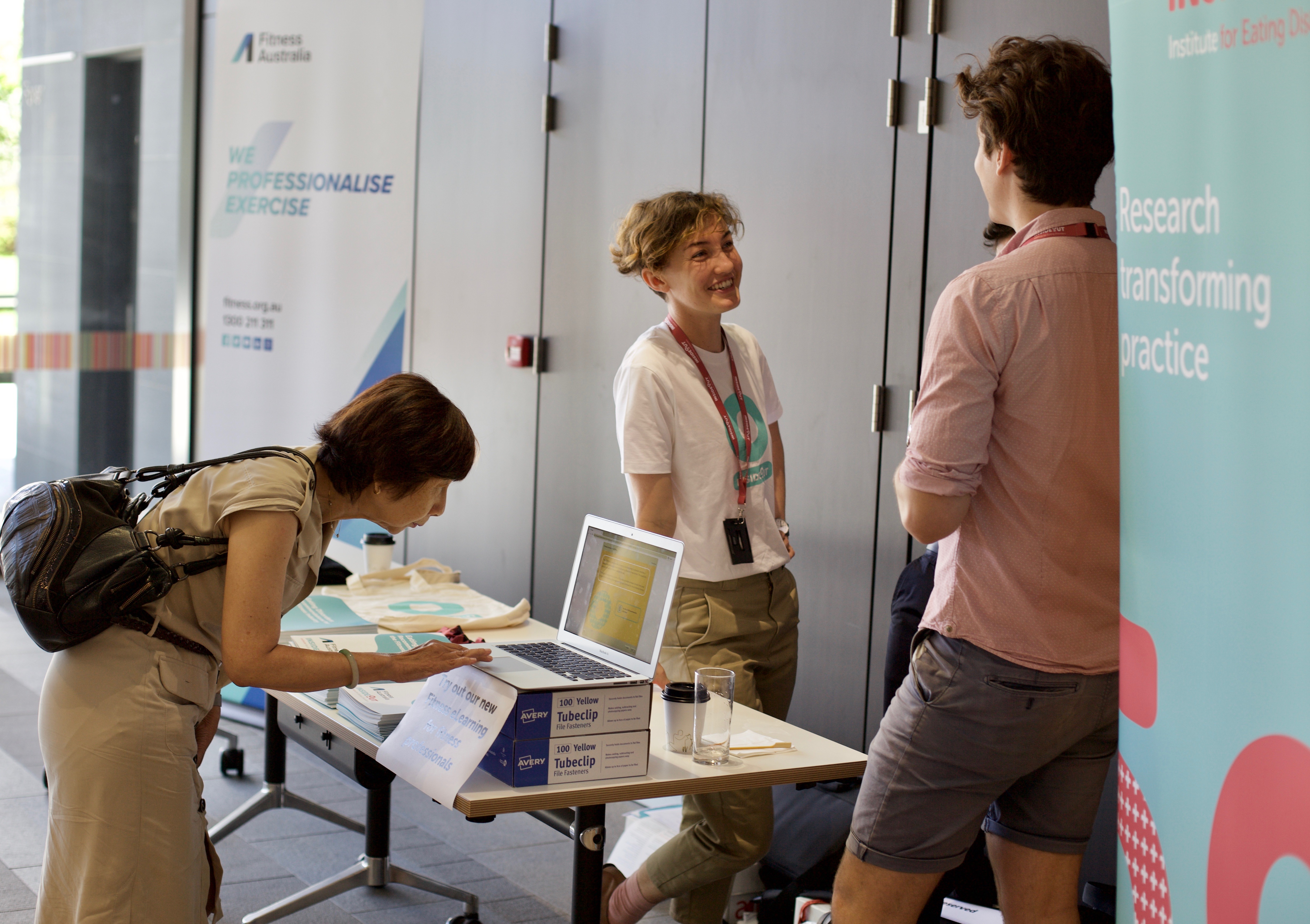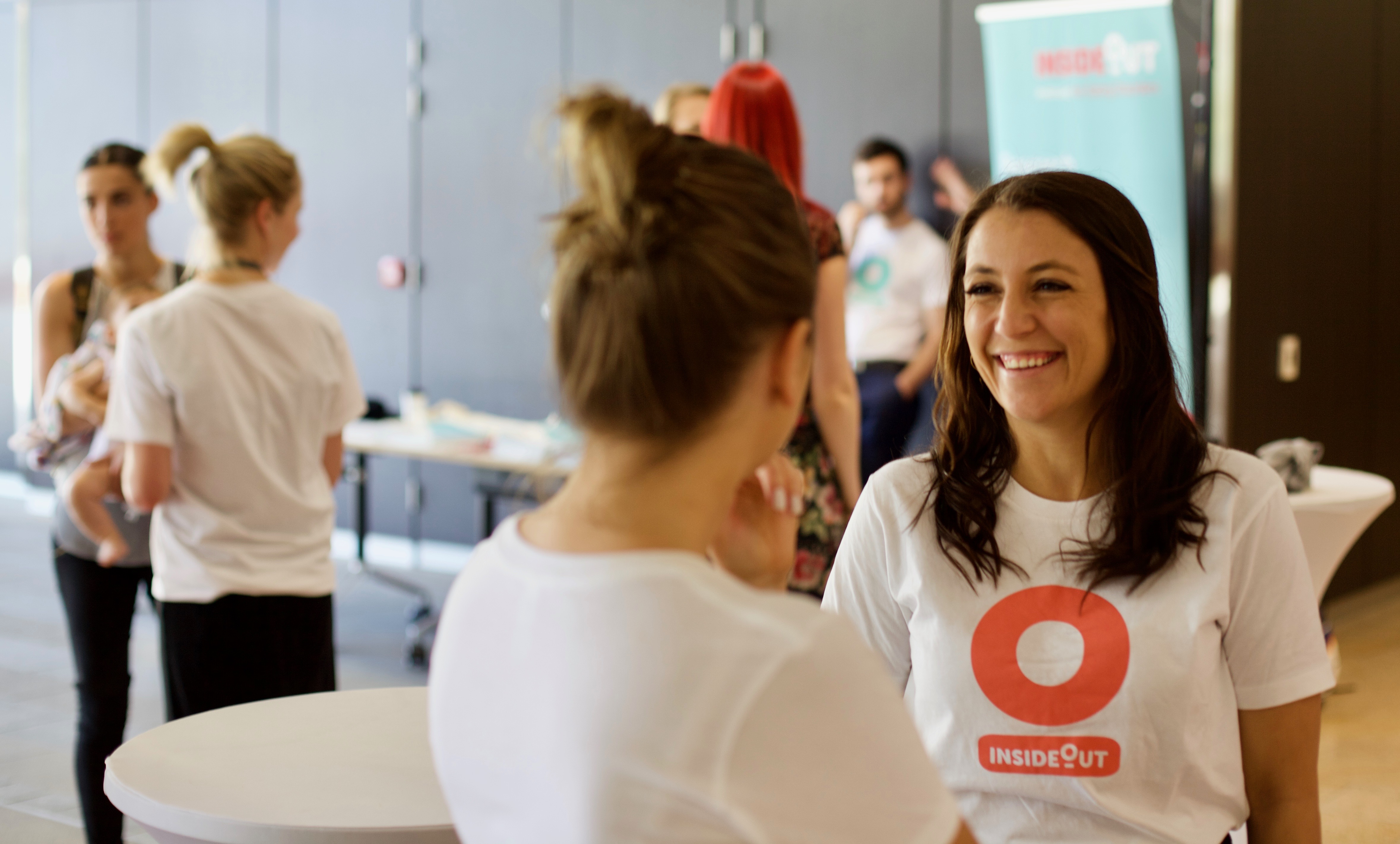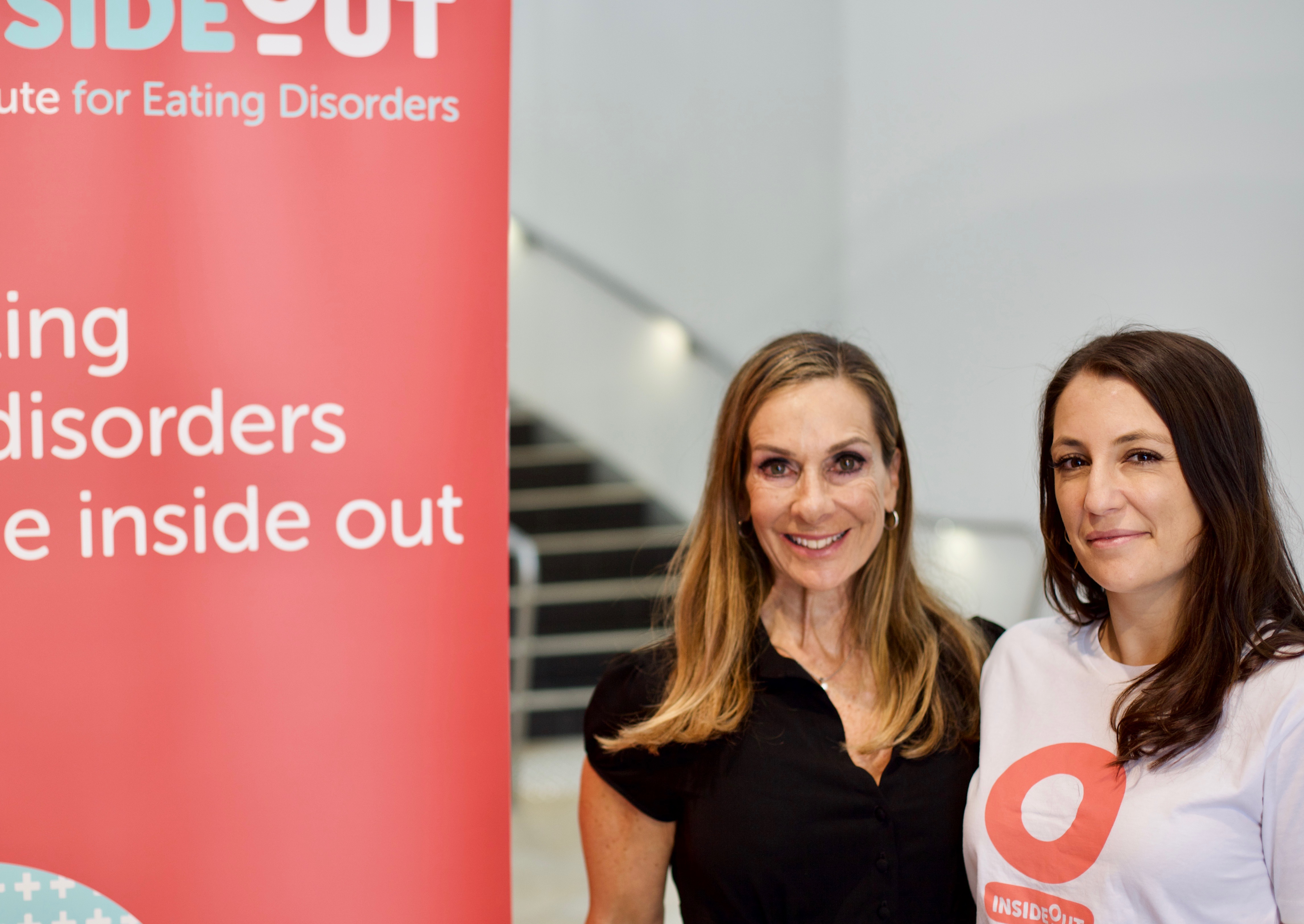
Feature
Launch of National Eating Disorder Recommendations for the Fitness Industry
19 Feb, 2020
InsideOut Institute has teamed up with Fitness Australia to release new national recommendations for the identification and support of people with eating disorders in the fitness industry.
Eating Disorders: Recommendations for the Fitness Industry is now available – READ NOW!
The recommendations are designed to help fitness businesses and professionals work with clients who have an eating disorder, exercise disorder or muscle dysmorphia - and to sensitively and appropriately address issues of health and safety within a fitness facility or setting.
Fitness establishments are one of the at-risk settings for people with eating and exercise disorders. Equipping at-risk settings (their staff and organisations) with the skills to be able to appropriately handle mental illness is important.
“I was sick and I needed help,” Australian cricketer Sarah Coyte shares her story
Australian cricketer Sarah Coyte spoke about her lived experience of an eating disorder at the launch of the recommendations at University of Sydney’s Charles Perkins Centre.
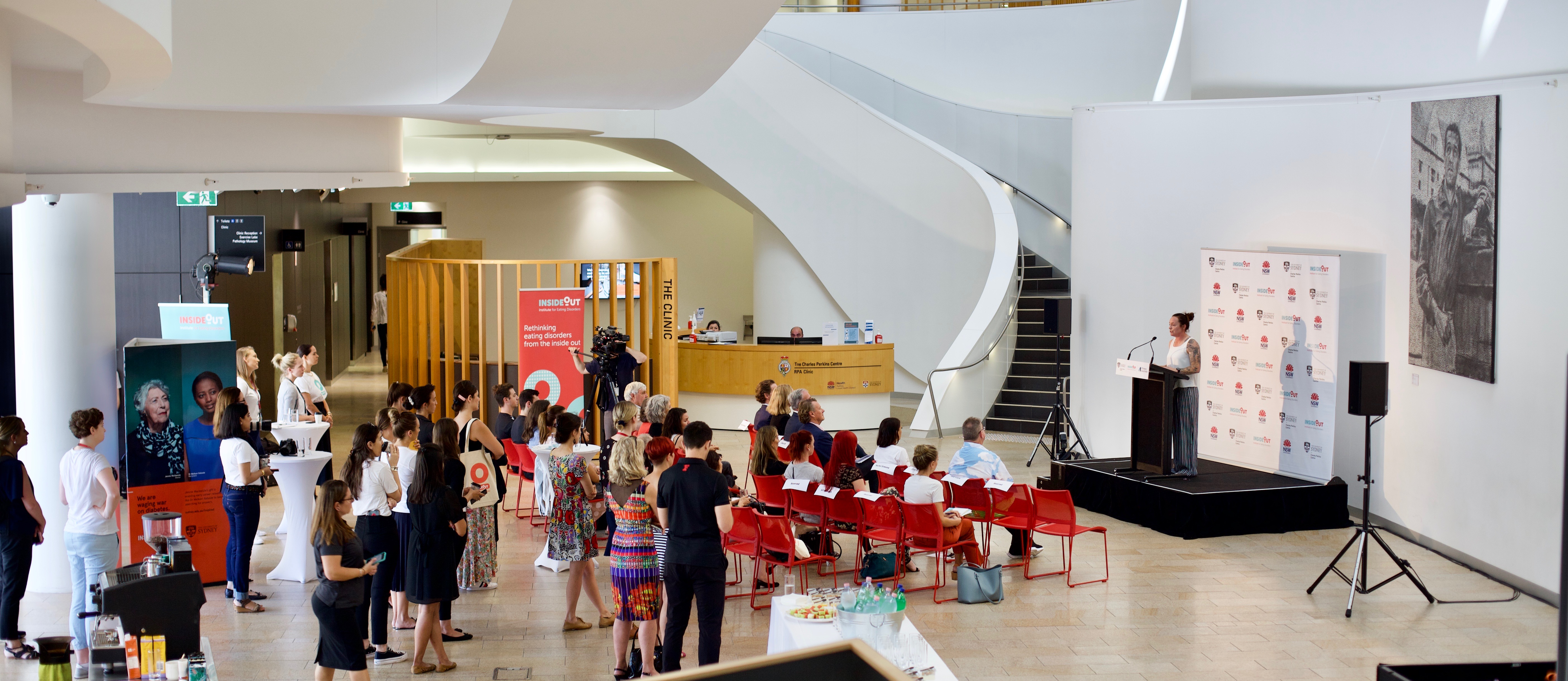
Coyte is a personal trainer with a lived experience of an eating disorder. Coyte has played in three Ashes series and four World Cups, and ranks among the best female bowlers in the world.
“At the peak of my career I helped to win back the Ashes, in England, on their own turf. But the truth is, I struggle to remember it.”
“On the surface, I was thriving, but my internal world was falling apart. Mentally, I was quite unwell. I had an eating disorder and an anxiety disorder. As you know, the two often go together.”
Coyte says the eating disorder was worsened by all the performance anxiety that comes with playing on a world stage, and the never-ending fitness testing.
“I was pretty much playing every game on energy drinks and adrenaline. I was not feeding my body properly and I was pushing it to the limits. I was sick and I needed help.”
“It all came to a head in 2017. I realised I needed to step back from cricket and to focus on my mental health.”
“I took an entire season off. I got psychological and nutritional support, and I got back on track.”
Coyte has since returned to domestic cricket and has just finished her first season back with the Adelaide Strikers.
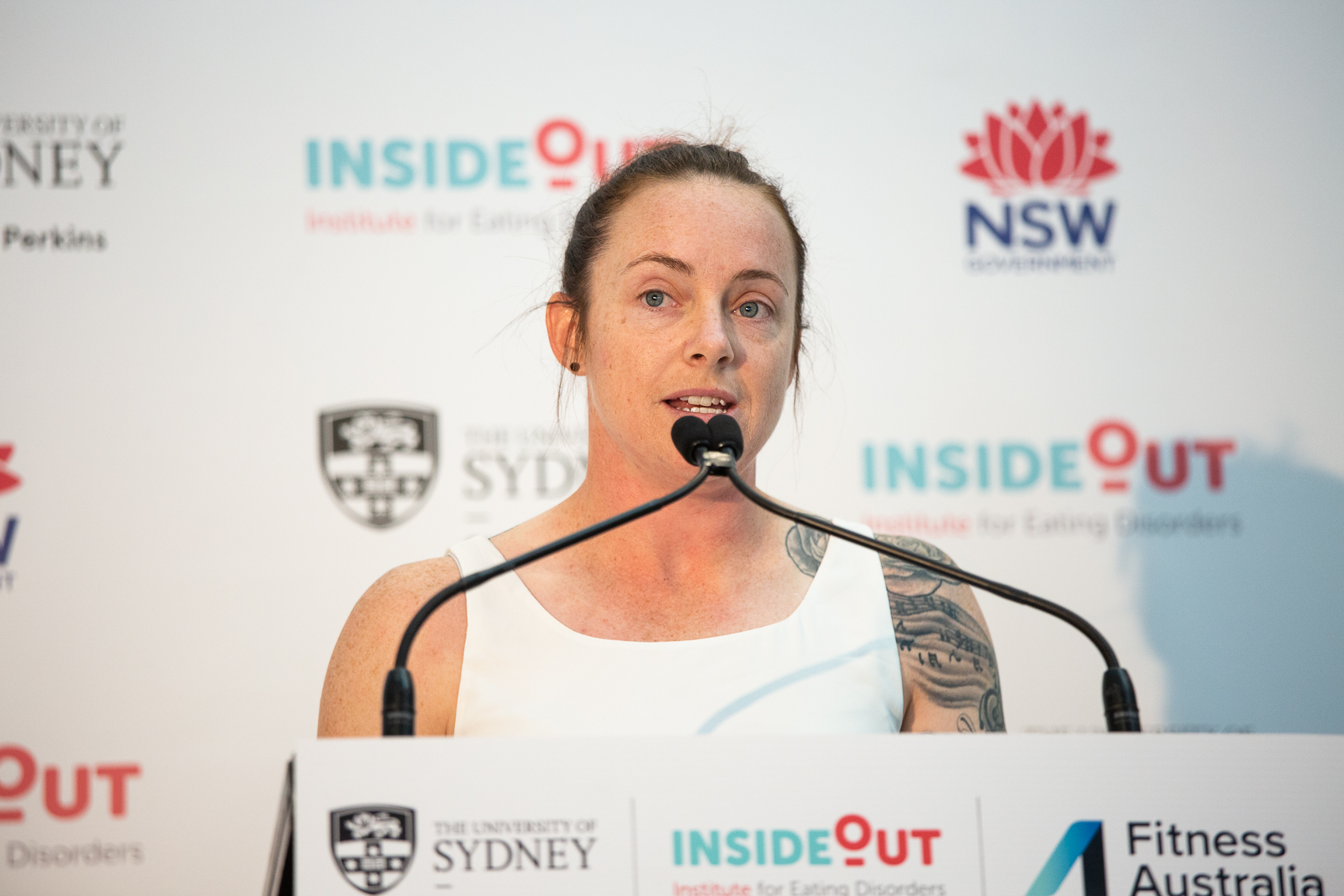
“I’m playing my best cricket yet. I’ll admit that some days, the eating disorder is still a challenge. But I’ve found a good balance between gym training and cricket training, and life away from the pitch.”
When Coyte is not playing cricket, she works as a personal trainer at a Sydney gym.
“People with eating and exercise disorders are often high users of fitness settings. Working in a gym, I see people’s struggles with exercise, their body and their food.”
“Fitness instructors and personal trainers are among the first to see the signs and symptoms of an eating disorder among their clients.”
“The reason I’m standing here today is because I finally got the help I needed – and I want to make sure others don’t have to fight as hard or look as far as I did to find support.”
"Fitness professionals need to be equipped to deal with these illnesses – this is mental health first aid.”
Recommendations a “really important development”
Federal Minister for Sport and Youth, The Hon Richard Colbeck, called the recommendations “a really important development”.
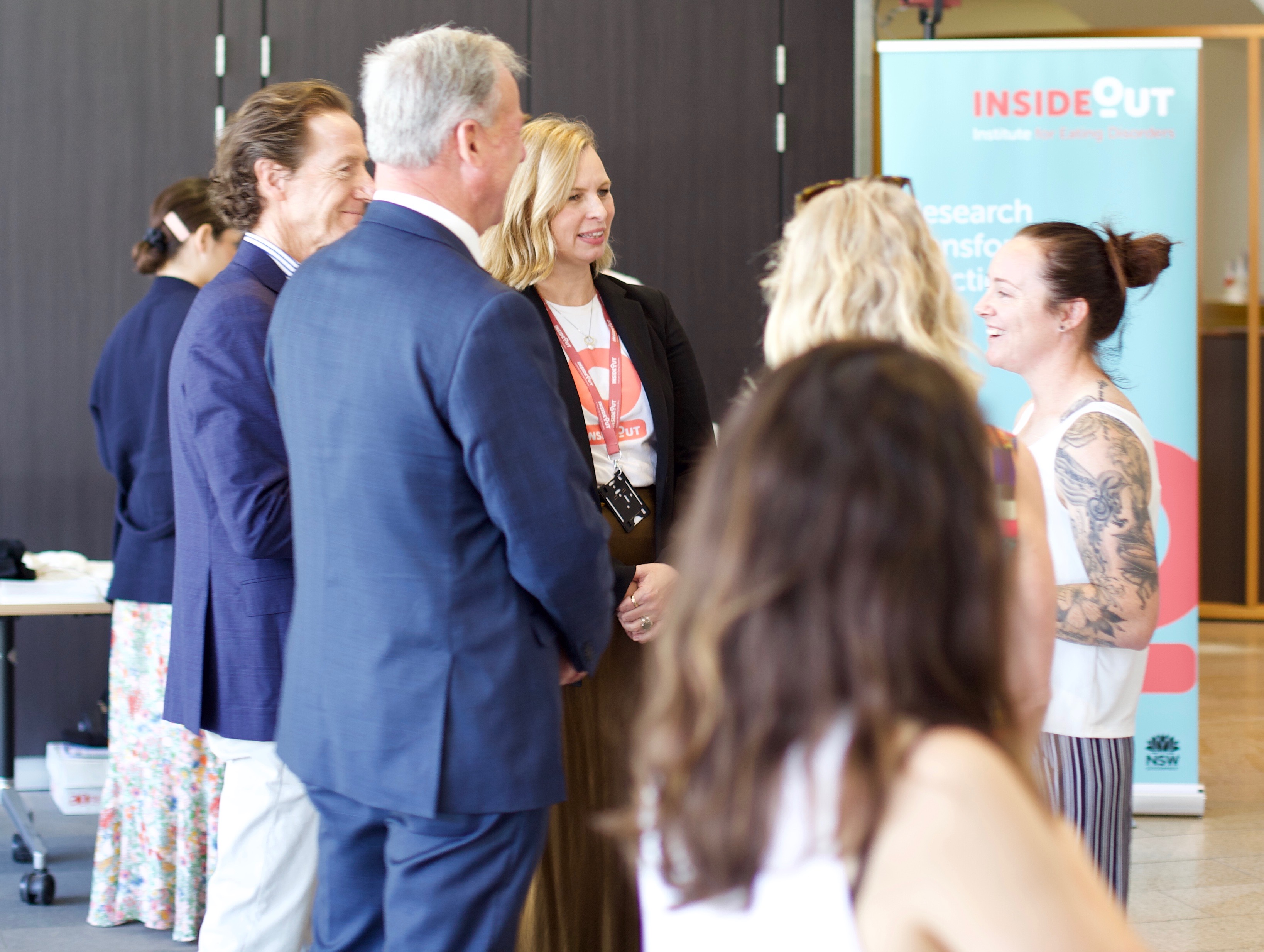
“This is a demonstration that there is a desire to make sure that those that are participating in the fitness sector are looked after.”
“It’s a big change over the last 20 years. You didn’t do things like this 20 years ago.”
“Had the knowledge that is being prepared through the work that's being done through InsideOut Institute been available to Sarah [Coyte] earlier, she may not have had to go through what she went through.”
“Sarah, your lived experience and your story is probably the most important and powerful representation to give people an understanding of what needs to be done – how people need to be helped.”
“These recommendations provide that base of knowledge for people working in the fitness industry to understand what they might need to do – and can help prevent the things that Sarah’s had to go through.”
“There’s a million people out there with an eating disorder – so there’s plenty of people to help.”
Fitness professionals in prime position to work alongside health professionals and be part of the solution
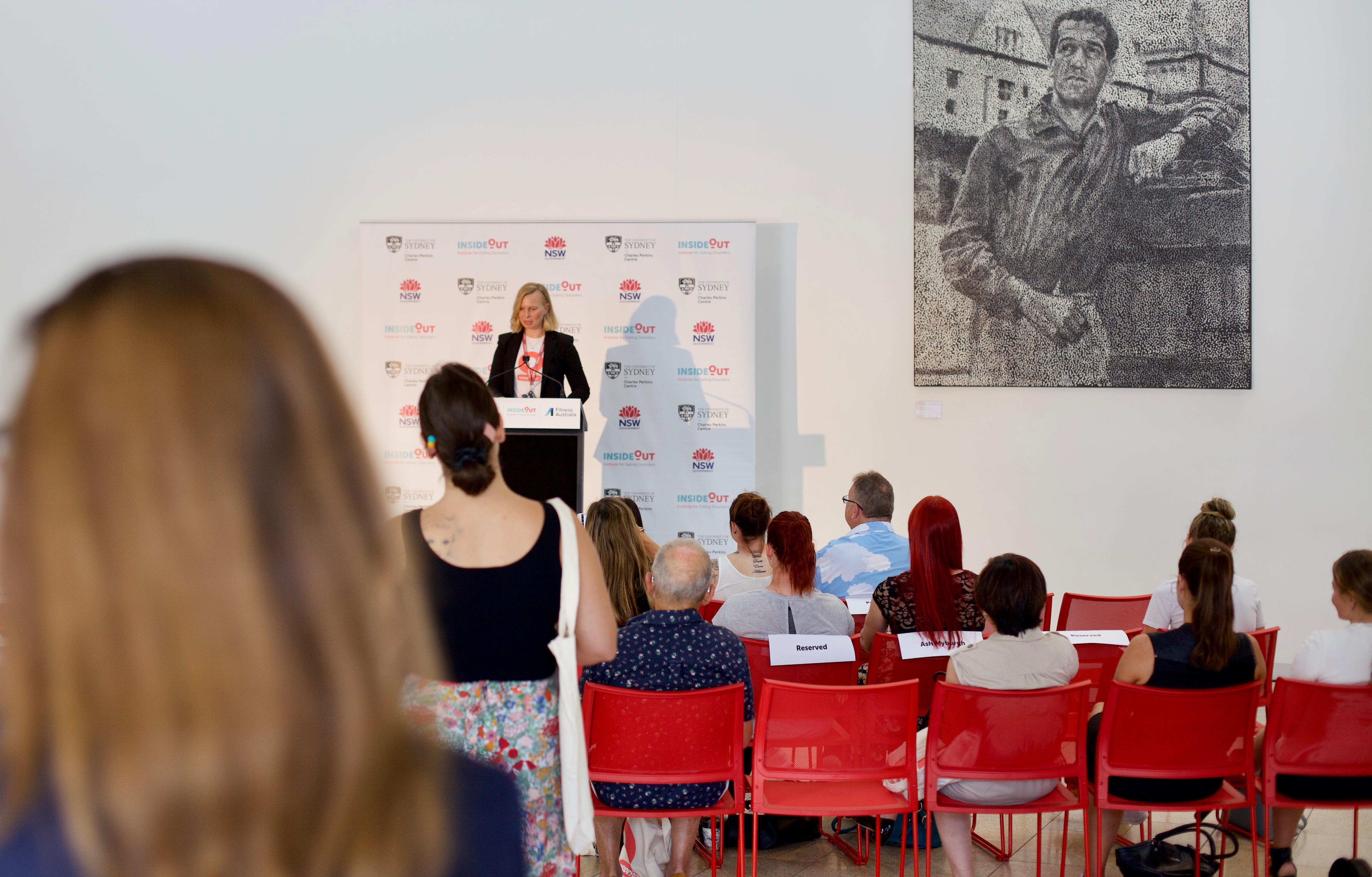
InsideOut Director Dr Sarah Maguire says gyms and fitness facilities are one of the most important commercial settings for the identification of eating disorders and early intervention.
“Eating disorders frequently present within the fitness industry. They have a high prevalence among sports people, have high mortality rates, and can pose a significant issue for professionals who are not necessarily trained in the management of this illness group."
“We are hopeful this set of recommendations can promote the early identification of eating disorders, and sensitive and appropriate handling of people who present with symptoms."
“Fitness professionals do not receive routine training in mental health first aid and need to be equipped with the skills to address these high prevalence disorders in their work settings.”
“We commend Fitness Australia for working with us to develop and implement these guidelines and for addressing this important health concern within their environment.”
Fitness Australia CEO Barrie Elvish says personal trainers, fitness instructors and fitness businesses managers have an important role to play when it comes to eating and exercise disorders.
“I’m really proud to be here today to actually drag, in some ways, the fitness industry back into engagement with the wider community.”
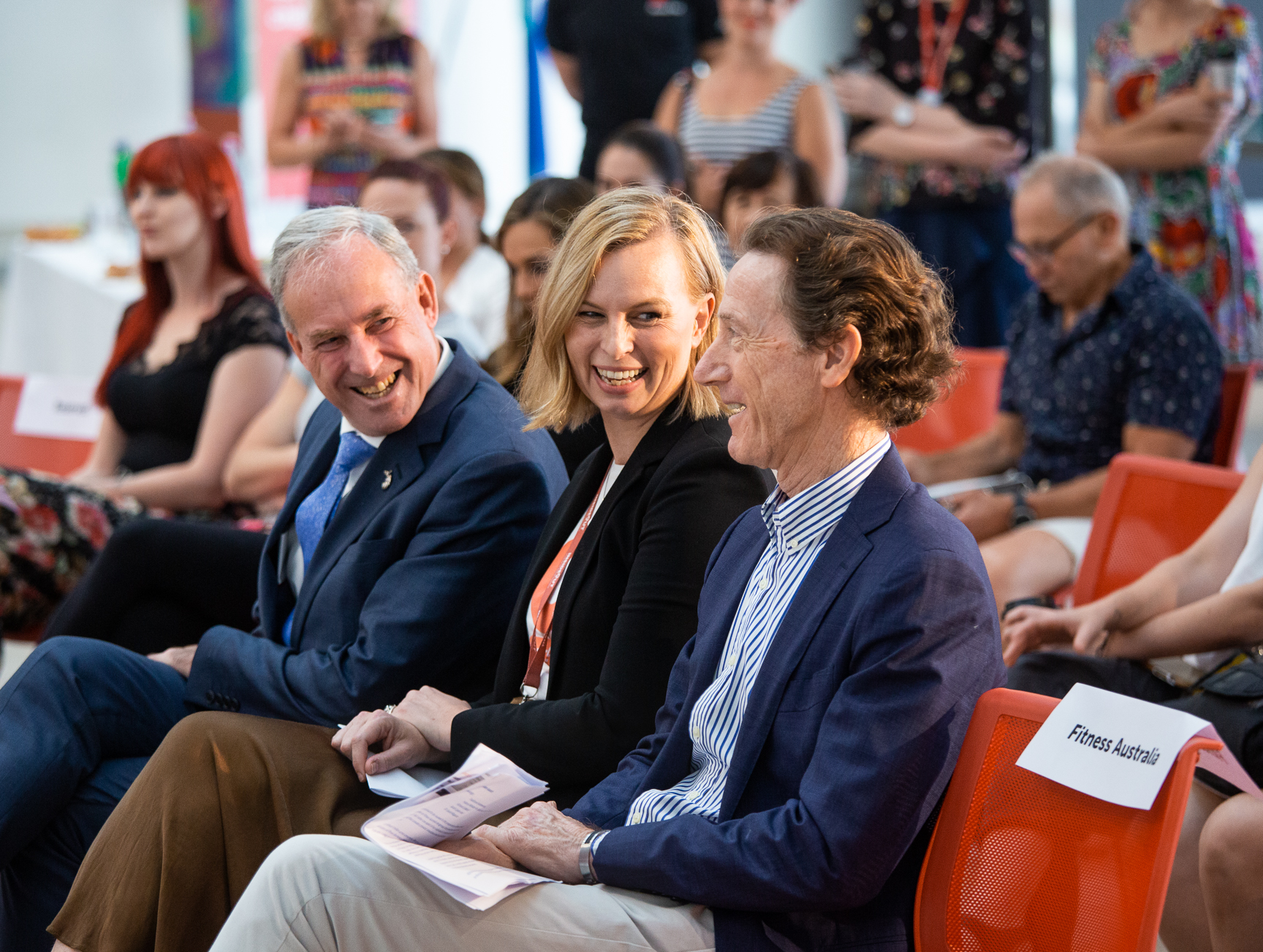
“The whole problem with body image through social media and so on, is a blight on our society - for females, and also now increasingly so for males. We need to be aware of that.”
“We need to, as an industry, accept people for what they are, who they are, and what they look like - and work with them.”
“We need to refer appropriately when they do present to our fitness instructors with issues.”
“We don’t want to get beyond our scope of practice. But we do need to know where to refer them, how to refer them, and importantly, how to work with those referral partners to provide a collective, integrated, holistic approach to help that individual client.”
“We want our Registered exercise professionals to have access to the best available training, including training on how to be part of the solution for people with eating disorders.”
‘We’d love to see these practical recommendations used in all fitness settings across Australia as an industry standard."
Fitness Recommendations Snapshot
- Create a holistic, inclusive environment that focuses on health rather than body perfection and supports positive body image
- Recognise warning signs when undertaking pre-exercise screening, through training and in general interactions with clients
- This includes recognising extreme forms of dieting, binge eating, self-induced vomiting and the misuse of laxatives, diuretics, diet pills and performance enhancing drugs
- Work within Scope of Practice and appropriately refer clients identified as at higher risk to a health professionals for assessment and guidance.
- Support recovery for those identified as having eating or exercise disorders by working alongside health professionals.
For more information see our online training program that accompanies the recommendations and other support resources:
Eating Disorder ‘Red Flags’: Decision Making and Communication for At-Risk Clients
Mental Health First Aid Australia: Eating Disorders First Aid Guidelines
